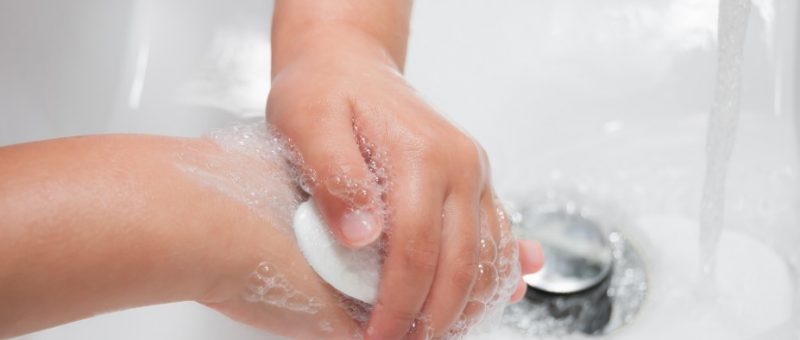The Food and Drug Administration in the USA have banned the use of antimicrobials in domestic soap products.
This is something many scientists have been dreaming of for years.
But why? you may ask. Surely antimicrobials help fight the spread of germs between people and keep my chopping boards safe from raw chicken?
The thing is, that’s what plain old soap does, and it’s good at it. Ever since Joseph Lister introduced antiseptic techniques to surgery, we’ve understood the benefits of soap. Studies comparing the use of standard soap to these antimicrobially-enhanced alternatives have shown there is no difference in their success at destroying bacteria.
In effect, the addition of these substances amounts to a marketing ploy to make the public feel safer when they buy these products. This in turn may contribute to complacency in hand-washing technique and best practice with foods in the kitchen including appropriate refrigeration and avoiding cross-contamination of plates with raw and cooked meat. This could actually increase the risk of spreading germs.
Complacency is not the only way in which these additives are bad for us as a community. Unnecessary use of antimicrobials such as disinfectants drives resistance to antibiotics. This can lead to the development of superbugs that simply don’t respond when faced with hard-core antibiotic drugs.
Pathologists are well-versed in this topic as they often test infectious agents for signs of resistance. Canberra based Pathologist Professor Peter Collignon is an expert in antimicrobial resistance and has worked with the World Health Organisation on this. He says,
“The consequences of misuse of antimicrobials are a massive health challenge. Unnecessary use or overuse in areas such as cleaning products and the farming industry all contribute to this problem. It’s great to see the USA take this step.”
If you want to scrub up on your hand-washing technique, check out this nifty how to guide from the World Health Organisation

